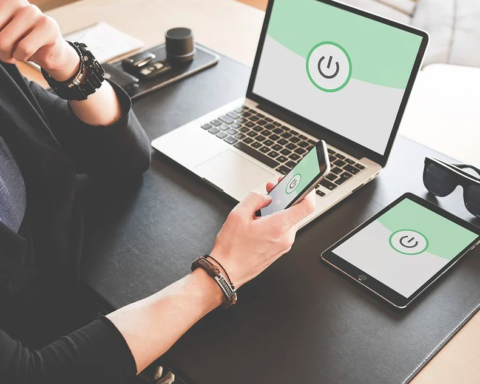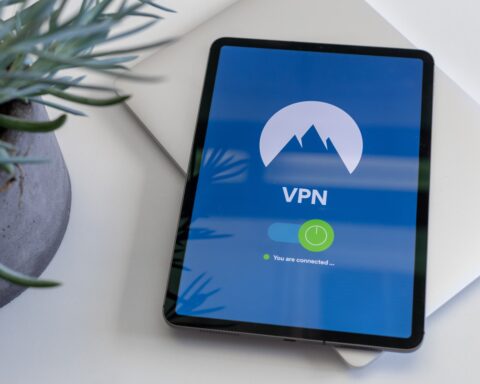PayPal scams continue to plague the internet as cybercriminals attempt to find ways to defraud individuals and businesses.
In this article, we look at a list of the most common PayPal scams and provide advice on how to avoid them.
1. Get A “Free” PayPal Account
As crazy as it sounds, one of the most popular PayPal scams targets users who haven’t signed up for the platform yet.
The scam starts with a seemingly good samaritan asking to create a free PayPal account on your behalf. It usually seems very legitimate, but there is a catch. The scammer will proceed to send you a link to a PayPal registration page that will collect your details for the creation of the account.
These sites are phishing sites that are made to look like legitimate PayPal pages. They collect very important information like your full name, location, billing address, credit card details, driver’s license number, and other financial data.
When scammers collect this much information, they could use it for anything on the internet, including identity theft and making purchases from your credit card.
2. An Advanced Fee Scam
An advanced fee scam is also popular among PayPal scams. The classic narrative includes an individual who seems to have a precious possession that they need your help to clear.
At this point, they will tell you they have to pay an advanced fee to unfreeze or clear their PayPal account, which they cannot do without you. In return, they promise to give you a large cut of the money made from the sale of the product.
3. Fake Invoice
In this PayPal scam, an invoice pops up based on something you never ordered or on a product you recently checked out. The invoice looks very legitimate and is hard to tell apart from an original invoice.
The invoice contains a link that then takes you to a phishing site that collects your data for the scammers.
4. The Shipment Never Arrived
Paypal scams are sometimes targeted at merchants and sellers. Scammers come to your site to place an order and pay with PayPal. Everything will seem alright until you lose your money and goods.
During checkout, the scammer will provide a fake delivery address that will cause the shipping company to list the product us initially “undeliverable.” Later on, the scammer will provide the right address and receive the product. However, the same person will report you to PayPal for failing to deliver the product.
Without proof on your end that you delivered it to the first address, Seller Protection will come in and release the funds back to the buyer.
5. Ship It To My Friend, It’s A Secret
This PayPal scam includes you helping a scammer surprise a “friend.” Very similar to the shipment never arrived scam, a scammer will contact you that they want to buy a product on your site.
Further, the scammer will plead with you to ship the product to a different address from their PayPal shipping address. The reason for this change, according to the scammer, is because they want to surprise a friend celebrating a birthday or wedding.
Unfortunately, if you fall for this story and you send the product to the person, the scammer will then file a report to PayPal, stating that you scammed them.
6. Fake Charities
Have you ever been hit up to send money to a “dying child in a developing country?” A lot of fake charities send emails to PayPal users claiming to be collecting money on behalf of the needy in society.
It is usually rampant during natural disasters. Scammers capitalize on the emotion of the moment to push people to give money. However, the money collected by these scammers goes straight into their pockets.
Also, unless you have given your email to a charity or NGO, they won’t send you an email. Emails from organizations you have never interacted with is most likely a scam.
7. Get Lower Fees Paypal Alternative
There are several PayPal alternatives, yet people use PayPal because it has particular features that protect the buyer.
This PayPal Scam introduces an alternative to you as a more affordable option for paying for a product. For instance, when you want to pay for a product on a site, the scammer will create an alert asking you to use another payment method like Western Union.
The usual excuse is that the alternative charges lesser fees or using that alternative gives you a discount. After making payments, the goods never arrive. You won’t be able to get your money back because the payment system doesn’t have a fail-safe system like PayPal.
How to Prevent PayPal Scams

Protecting your account against PayPal scams is as important as recognizing these scams when they hit you. Basic things like “avoid sharing your PayPal account details” is something every user is aware of.
Here are more ways to prevent PayPal Scams:
1. Don’t Open Spam
Avoid opening spam messages. Especially messages that have “PayPal” in the title or are somehow linked to money.
Also, in situations where the email bypasses the spam filter, you should avoid opening suspicious links. Any PayPal activity should be done on the official website and not other look-alike sites.
2. Greed Will Cost You
We like to look for opportunities that will make us or save us money. Unfortunately, any offer that seems to be too good to be true is most likely a scam.
Be careful of the emails with language like “buy now,” “hurry up,” “get free money here,” and “claim money now.”
3. Don’t Ship To Another Address
If a buyer tells you to send goods to an address different from what is in the transaction form, you should decline it.
It is most likely a scam that will cause you to lose your money and products. Inform the buyer that you will not be able to do that and cancel their order if they insist.
Finally, check your PayPal account frequently and keep tabs on PayPal’s latest policies to avoid being outsmarted by scammers.







